-
ABOUT US
-
ACADEMICS
Curriculum Program
Departments
- English
- High School Chinese
- Primary and Junior School Chinese.
- High School Mathematics
- Middle School Mathematics
- Primary School Mathematics
- Music and Fine Arts
- Physical Education
- Physics
- Chemistry
- History and Geography
- Physical Science and Optional courses Department
- Middle School Biology
- High School Biology
- Social Sciences
- Computer Science
- Courses in Primary School
Achievements and Matriculations
College Counseling
Science & Technology Innovation Contest
-
ARTS
-
ATHLETICS
-
AT SHSID
SHSID ∣ TIMES
PTSA
Club Exhibition
- 龙吟社
- Live 2 Drama
- Choir
- Hip-pop Dance Club
- The Primary School Dance Troupe
- Symposiums Club
- Biology Workshop
- You Shan
- VEX Robotic
- Peking Opera Club
- Baseball Club
- Model United Nations
- The World Scholar’s Cup
- Future Problem Solving Club
- United States Academic Pentathlon
- OM Club
- AMC Club
- Music for Patients
- SHSID Gazette
- Smile Charity
- Cultural Moments
- SciAcademy
- Stem Doge Alliance
- Chinese Debate Club
- IAA
- Mock Trial Club
- Zhengming Club
- Art-to-zine
- Bananaheads
- Electronics
- Furry Friends
- GT-Racing
- MCG Philharmonics
- Village Radio
- IMMC Club
- Creative Design and Intelligent Fabrication
- Future City Research Project
- ECOCAP
- AdvocaSEA
- SPDC
- Medishine
- Floorball Club
- Animusic MTC
- Wings Up
Health and Wellness
Campus Safety
Cafeteria Service
-
ADMINISTRATION
-
ADMISSIONS
-
ALUMNI
Alumni Information
Honors Students
- Class of 2024
- Class of 2023
- Class of 2022
- Class of 2021
- Class of 2020
- Class of 2019
- Class of 2018
- Class of 2017
- Class of 2016
- Class of 2015
- Class of 2014
- Class of 2013
- Class of 2012
- Class of 2011
- Class of 2010
- Class of 2009
- Class of 2008
- Class of 2007
- Class of 2006
Who Studied at SHSID
SHS Foundation
-
DOCUMENTS
History and Geography Department: Read, Explore, Reflect, and Communicate: History Reading Lunchtime Sharing Session
On March 26 and 27 at lunchtime, the History and Geography Department organized two reading and sharing activities in the reading room of the Zhongxing Building. At the beginning of this semester, a group from each grade and level formulated the reading list and plan according to the students' specific situation and teaching content. Students read according to the teachers' guidelines with the premise of understanding the historical background, and they can choose to read part of the chapters intensively or read the entire book, record notes, and write book reviews.
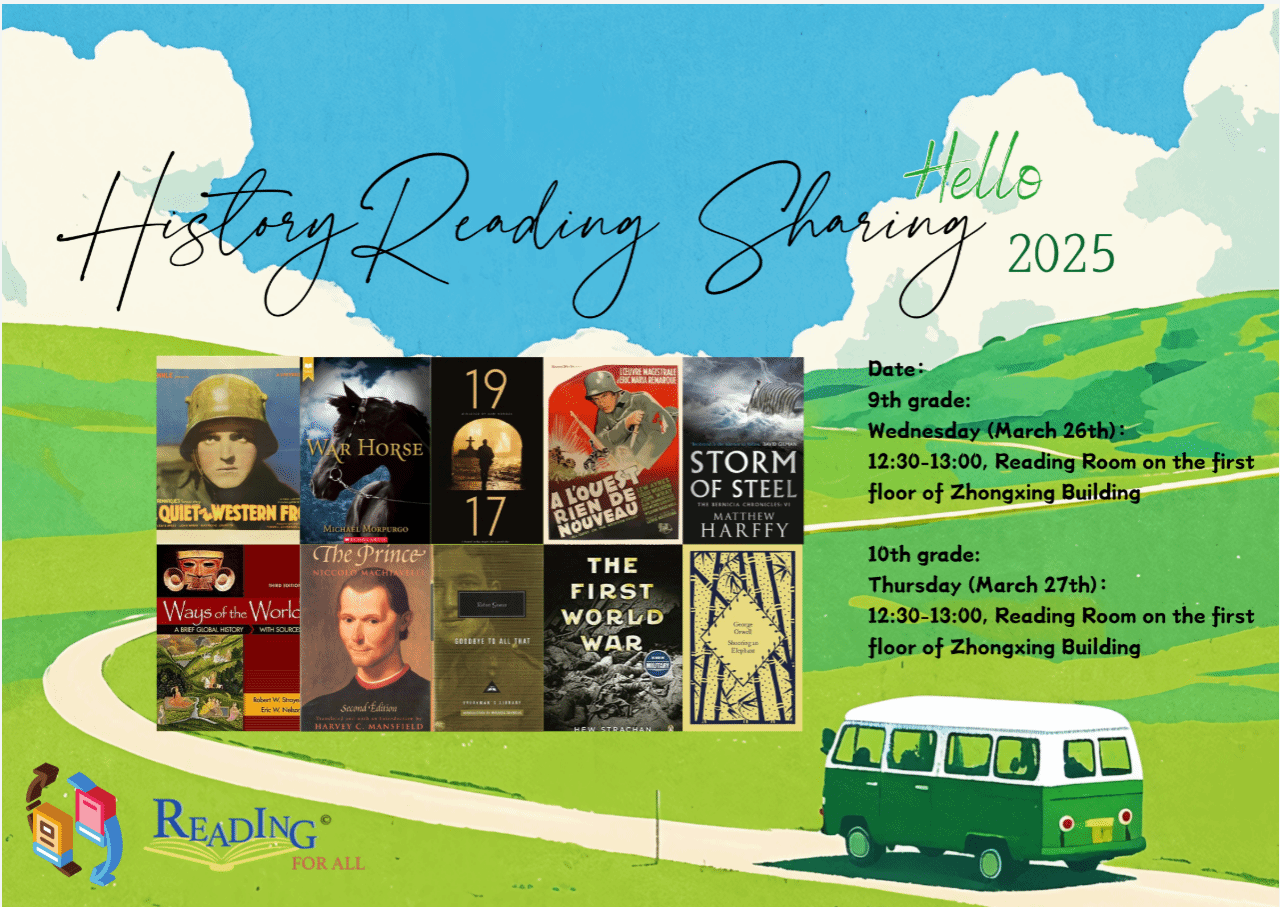
Wednesday was the Grade 9 students' turn. H level required students to choose any source they find related to second-semester content to read and refine their arguments, or they could combine it with the semester project - Museum Exhibition - in preparation to present the references and their ideas. The students' topics appeared to be varied, ranging from Aztec mythology in the Americas (Fifth Sun: A New History of the Aztecs), the Renaissance (Inventing the Renaissance: The Myth of a Golden Age), to the art of calligraphy in the Ming Dynasty of China. Based on the readings, they composed music and produced videos with justifications, full of creativity, to provide the basis for the accumulated presentation materials for the explored themes. S+ level required students to read an academic article or historical work of their own choice and analyze the author's main arguments and corresponding evidence. Two students elaborated on The Chronicles of the First Crusade and Medieval Market Morality: Life, Law and Ethics in the English Marketplace, 1200-1500. At the S level, students were required to selectively extend their reading and make their reflections on the excerpts from Machiavelli's The Prince. The two students focused on famous arguments such as 'the end justifies the means,' 'it is safer to be feared than loved as a ruler,' and the need to be 'like a lion and a fox.' They also commented on the essential qualities of a leader and their applicability to contemporary society. Nine students shared their views in such a fantastic way that it felt like the lunch hour had flown by, and the listeners could not get enough of it.

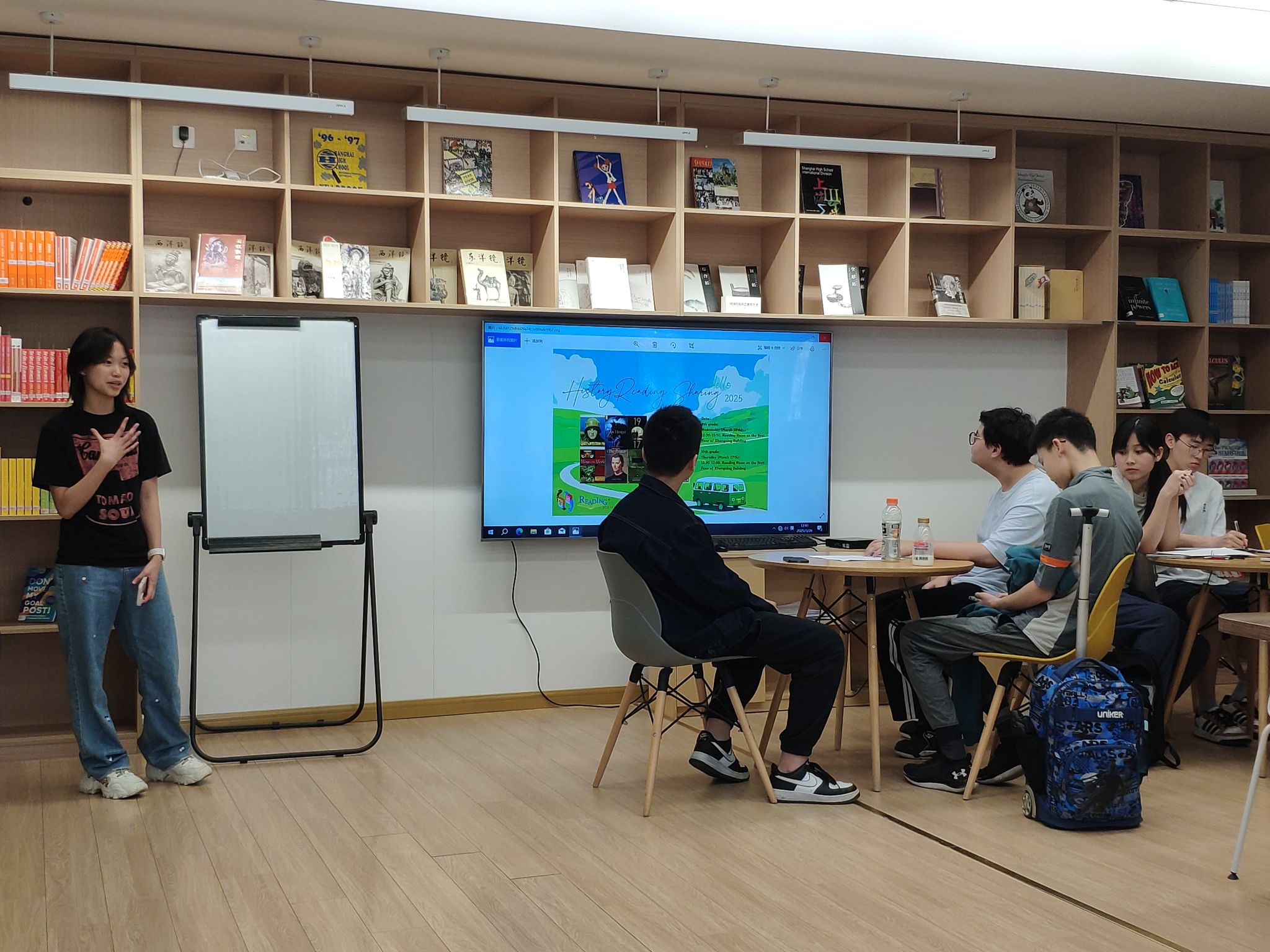
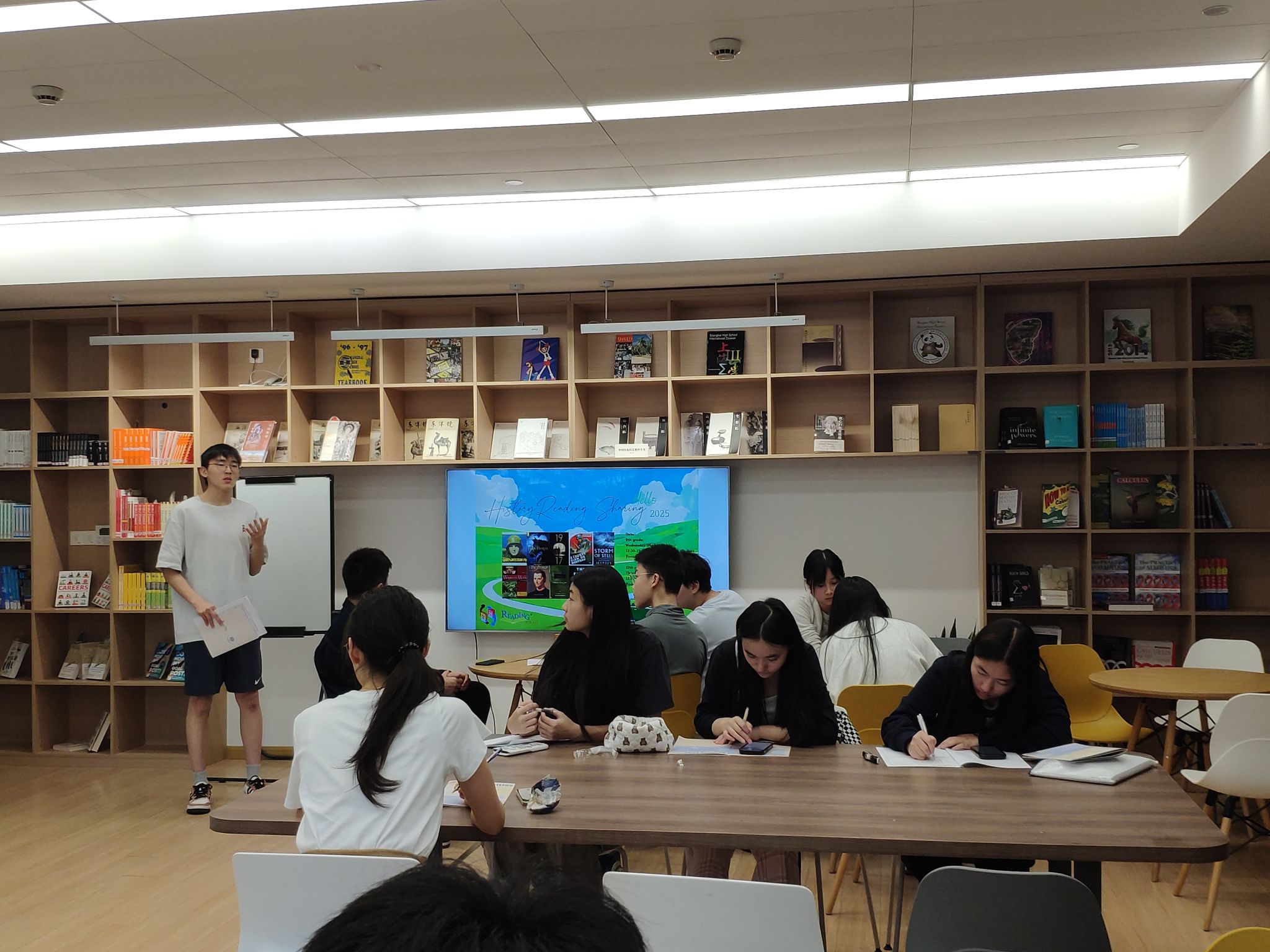
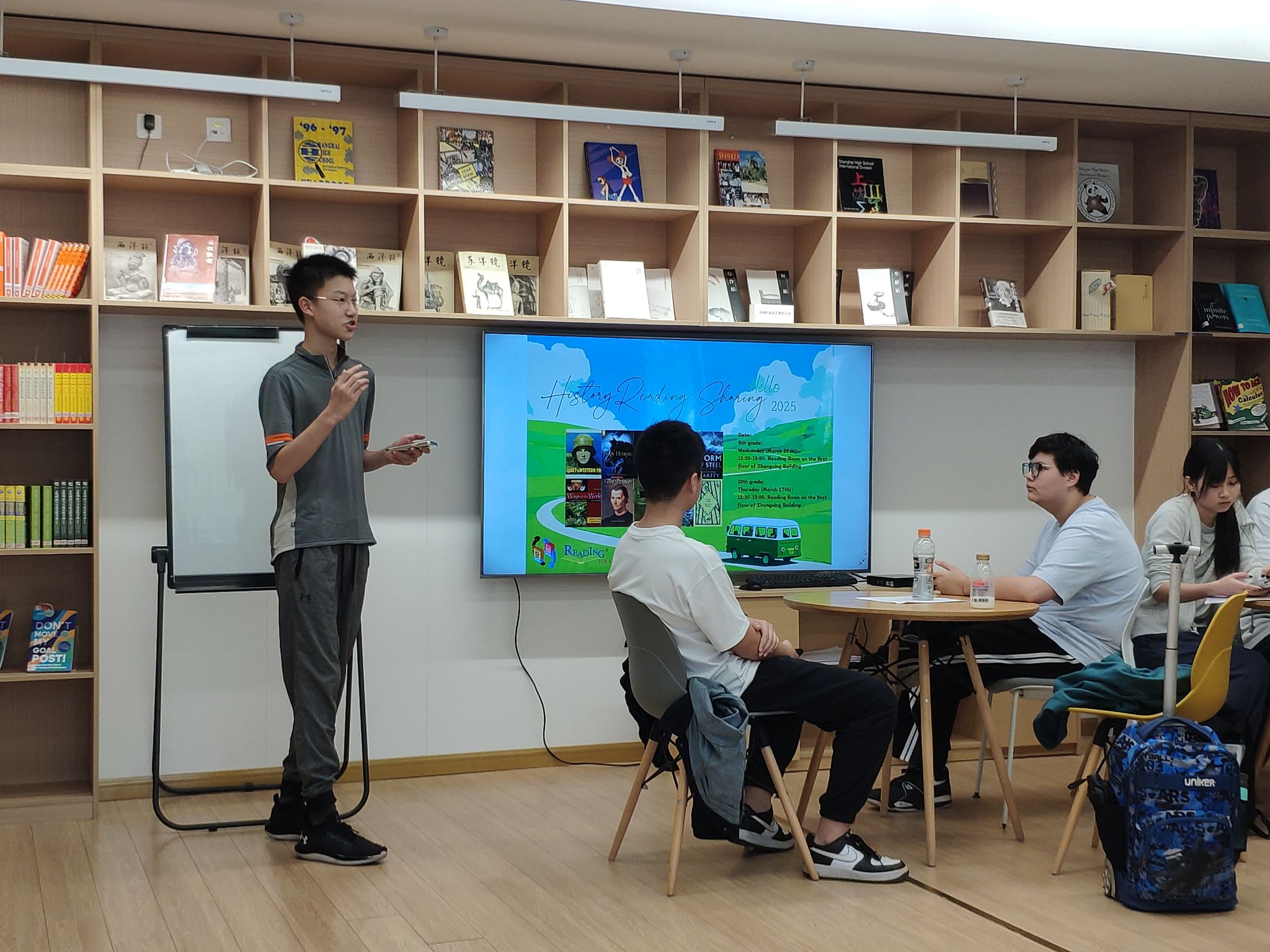
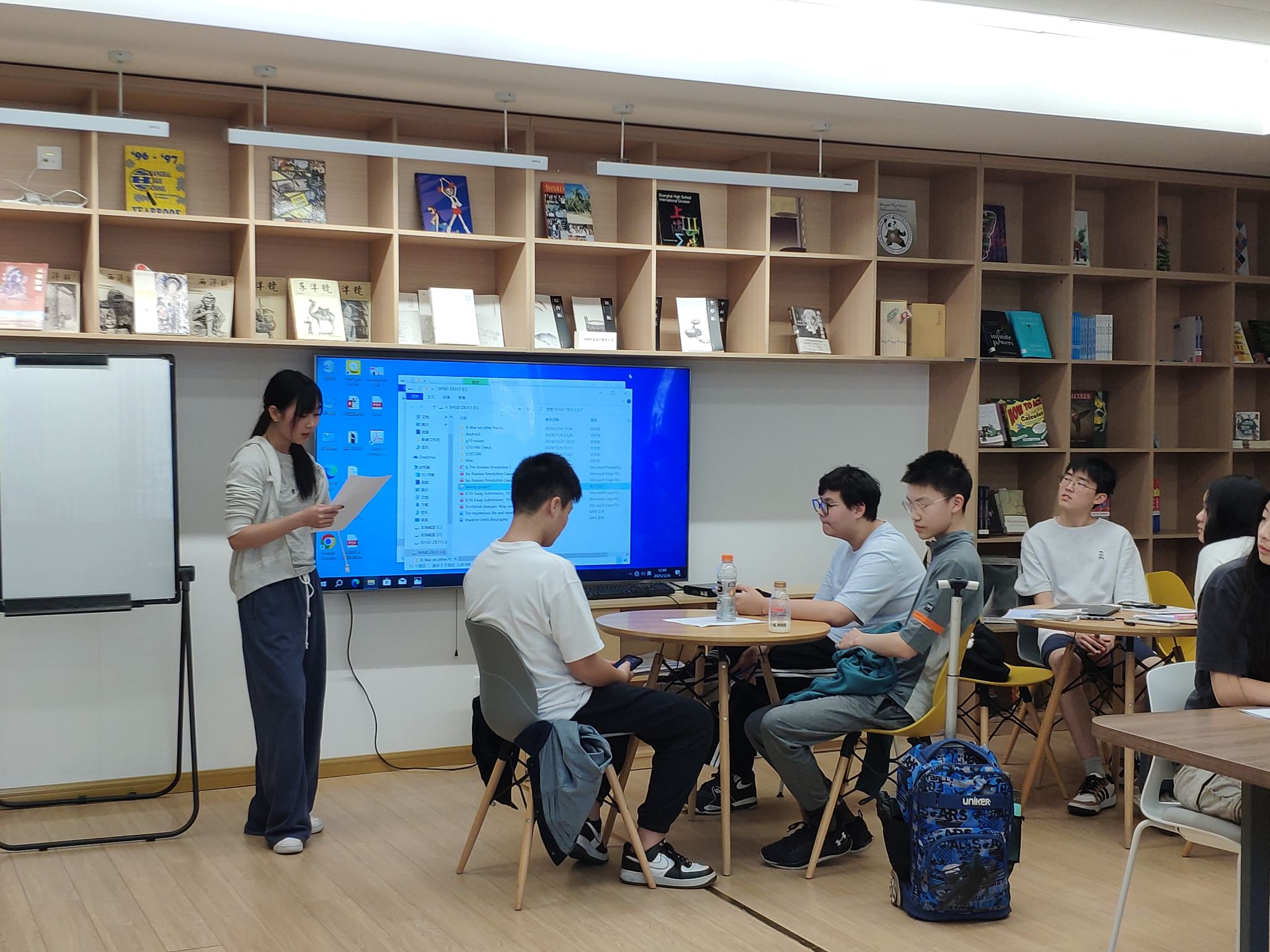
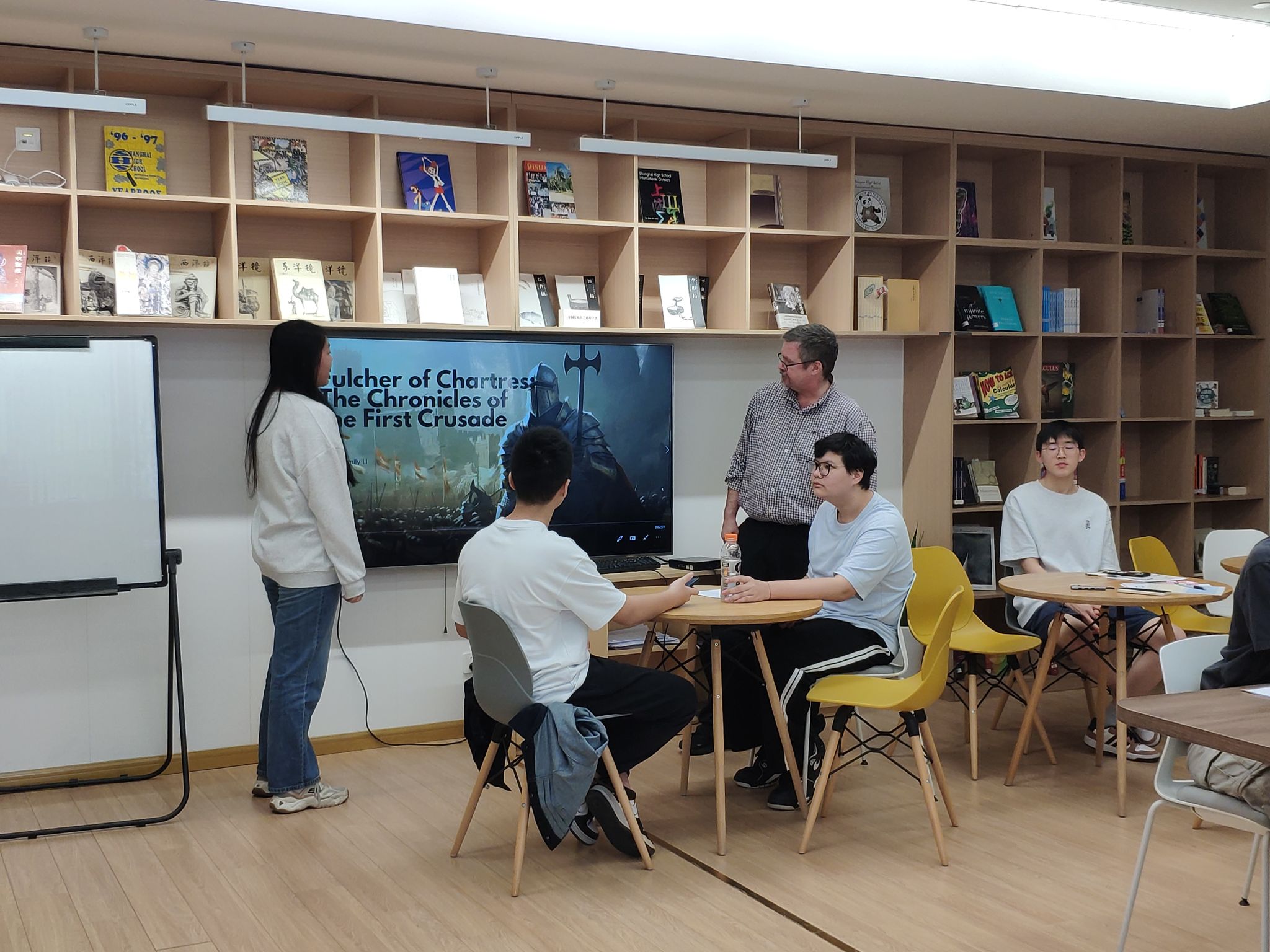
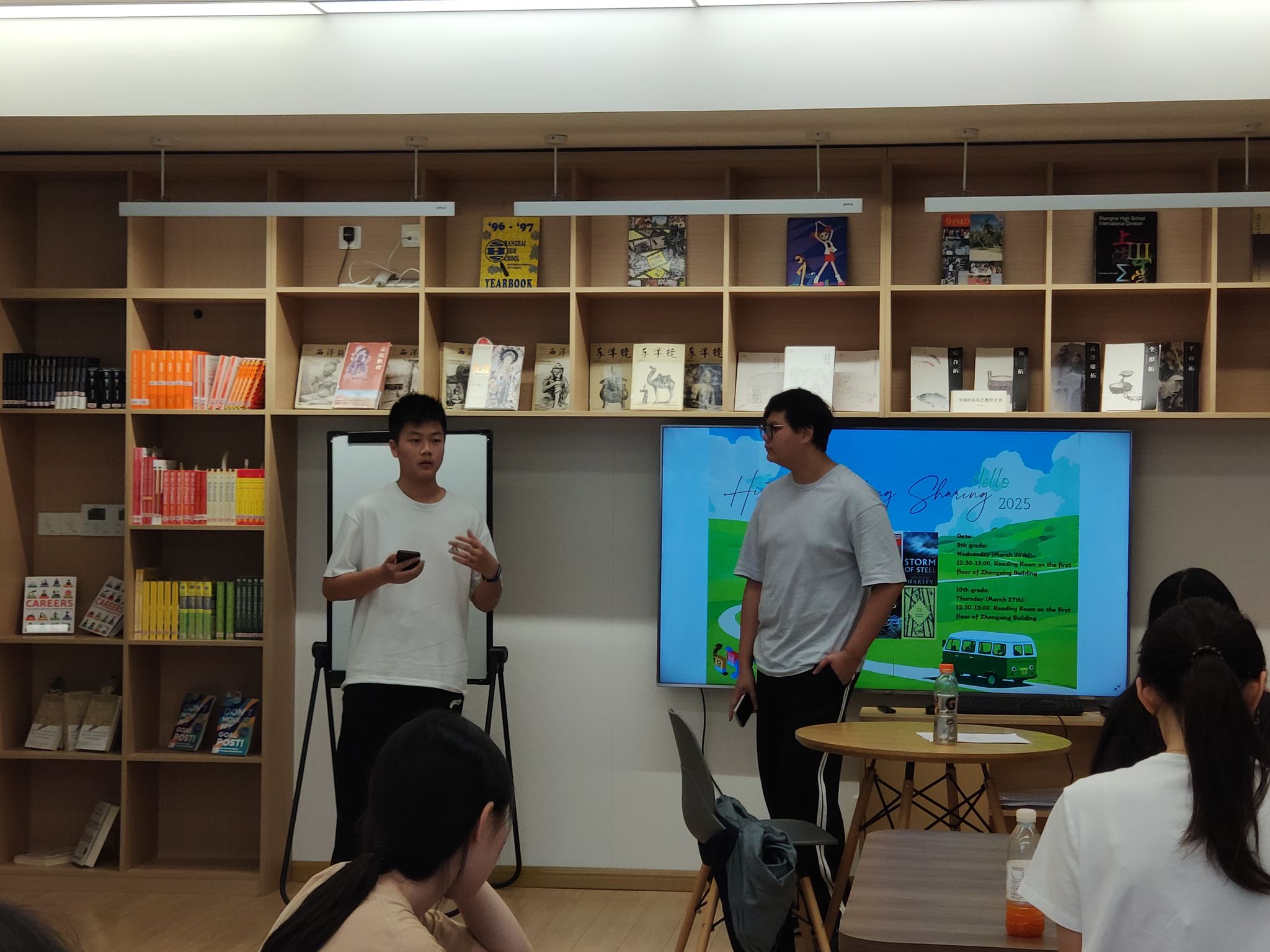
On Thursday, Grade 10 students' presentations centered on a ‘heavier’ topic - World War I and colonialism. The S+ level required students to compare and analyze the film 1917, as well as a book (choose one of All Quiet on the Western Front, Goodbye to All That, Storm of Steel, and The First World War) to explore the accuracy of the film's portrayal of reality and the value of the different literary genres available as historical sources. Two students compared the film to All Quiet on the Western Front and Storm of Steel, respectively, analyzing the purpose, historical value, and limitations of film and literary creation from the perspectives of the director and the author; S-level exchanges took place in pair or small group work, with students describing the authors, the major plot points, the characters/animals of War Horse as well as All Quiet on the Western Front, and their personal feelings about the stories; and the H-level sharing centered on George Orwell's Shooting an Elephant, discussing the impact of British colonialism in Burma and analyzing the symbolism of the elephant and the inner conflict of the protagonist in the book. Eleven students were well-prepared and confident in their presentations, which made for an incredibly fulfilling 40 minutes for the audience.
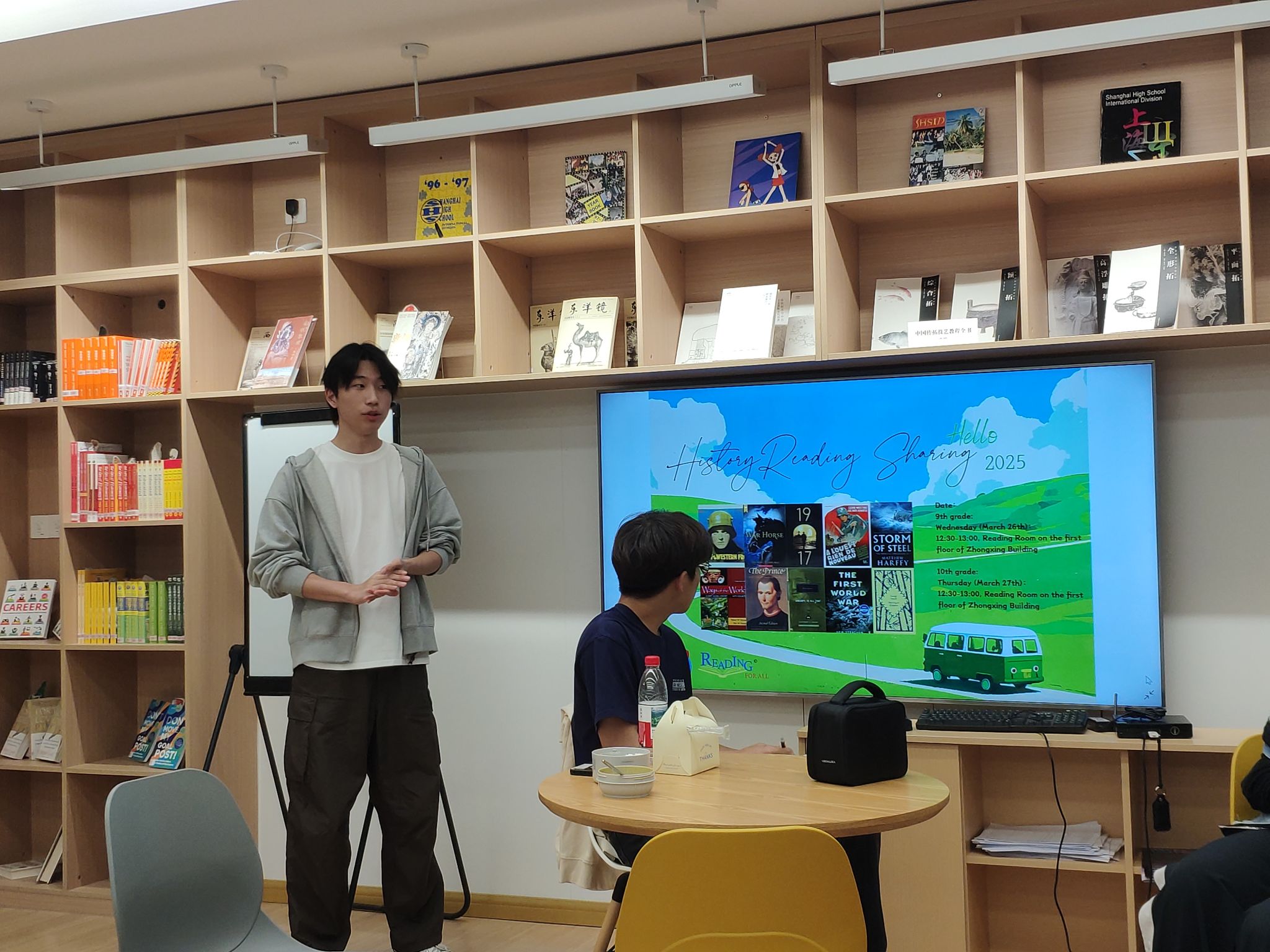
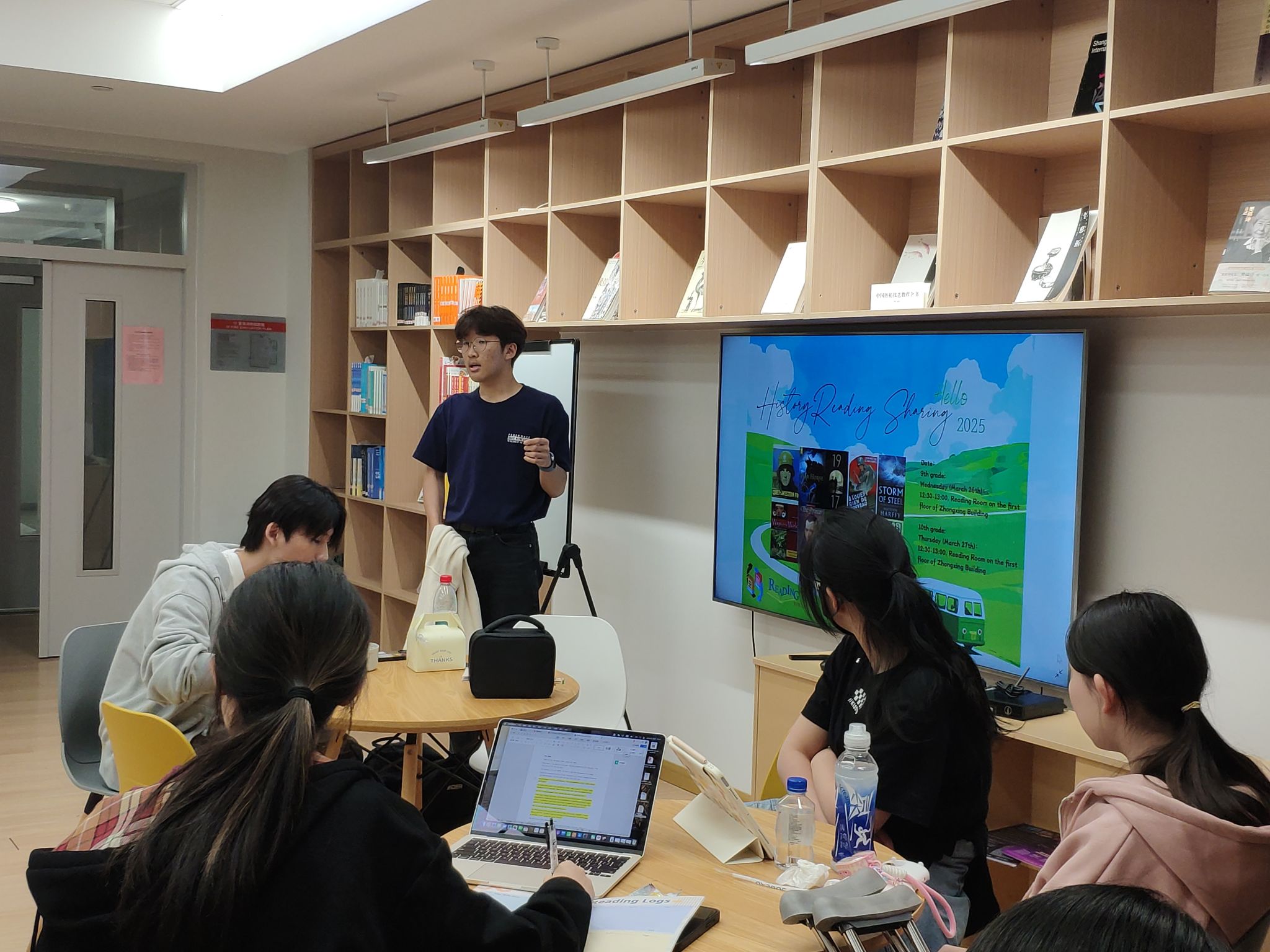
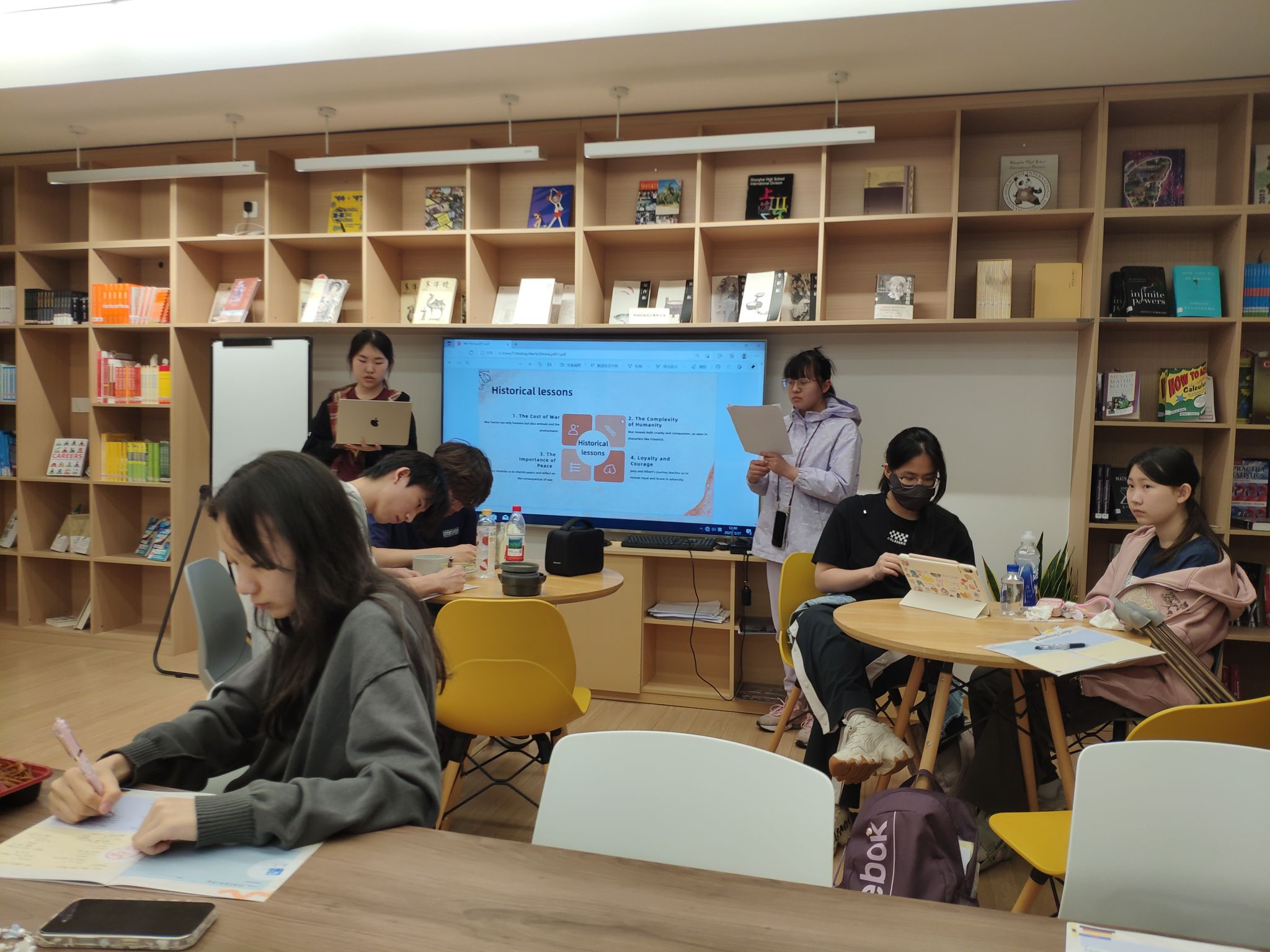
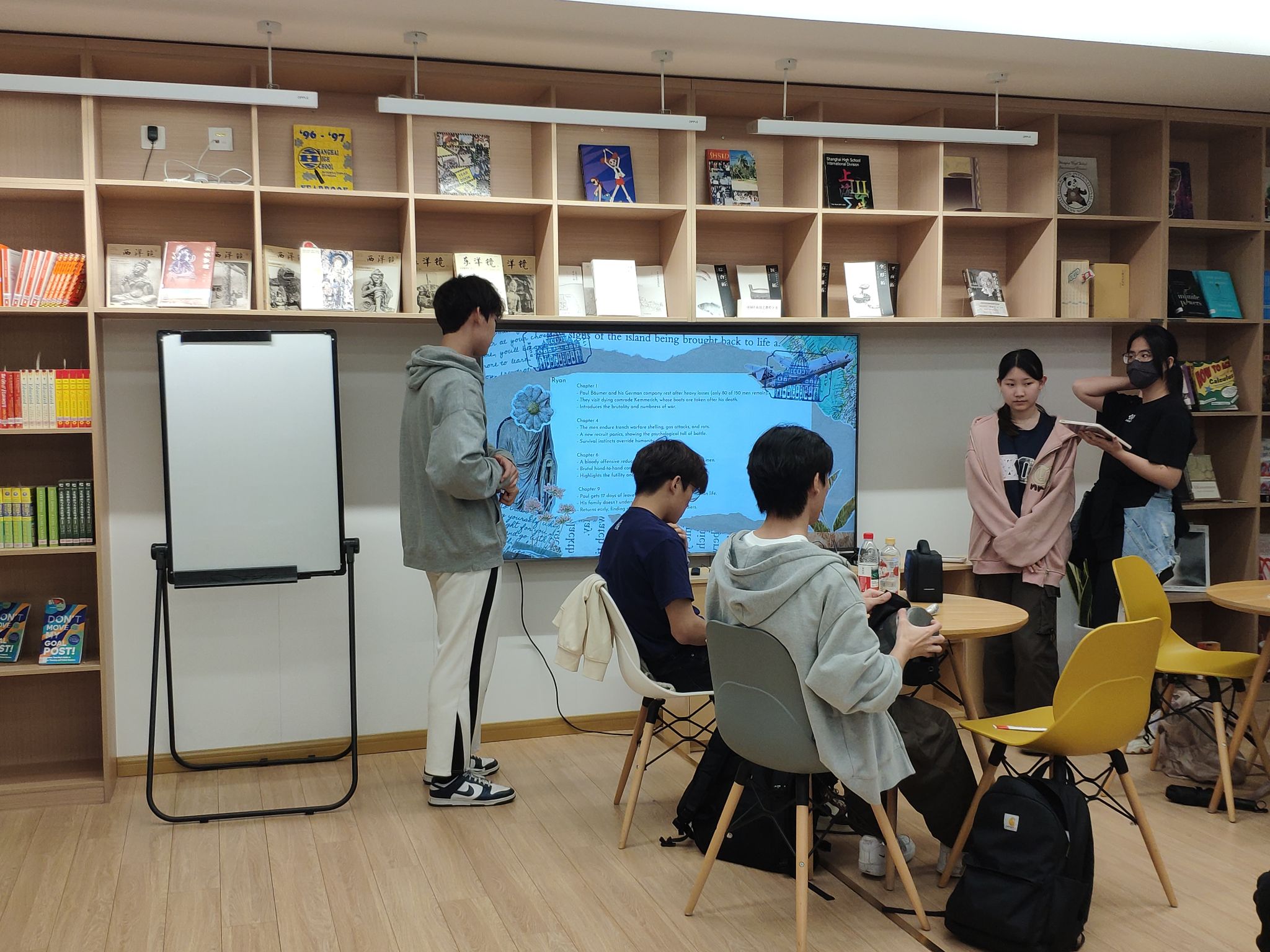
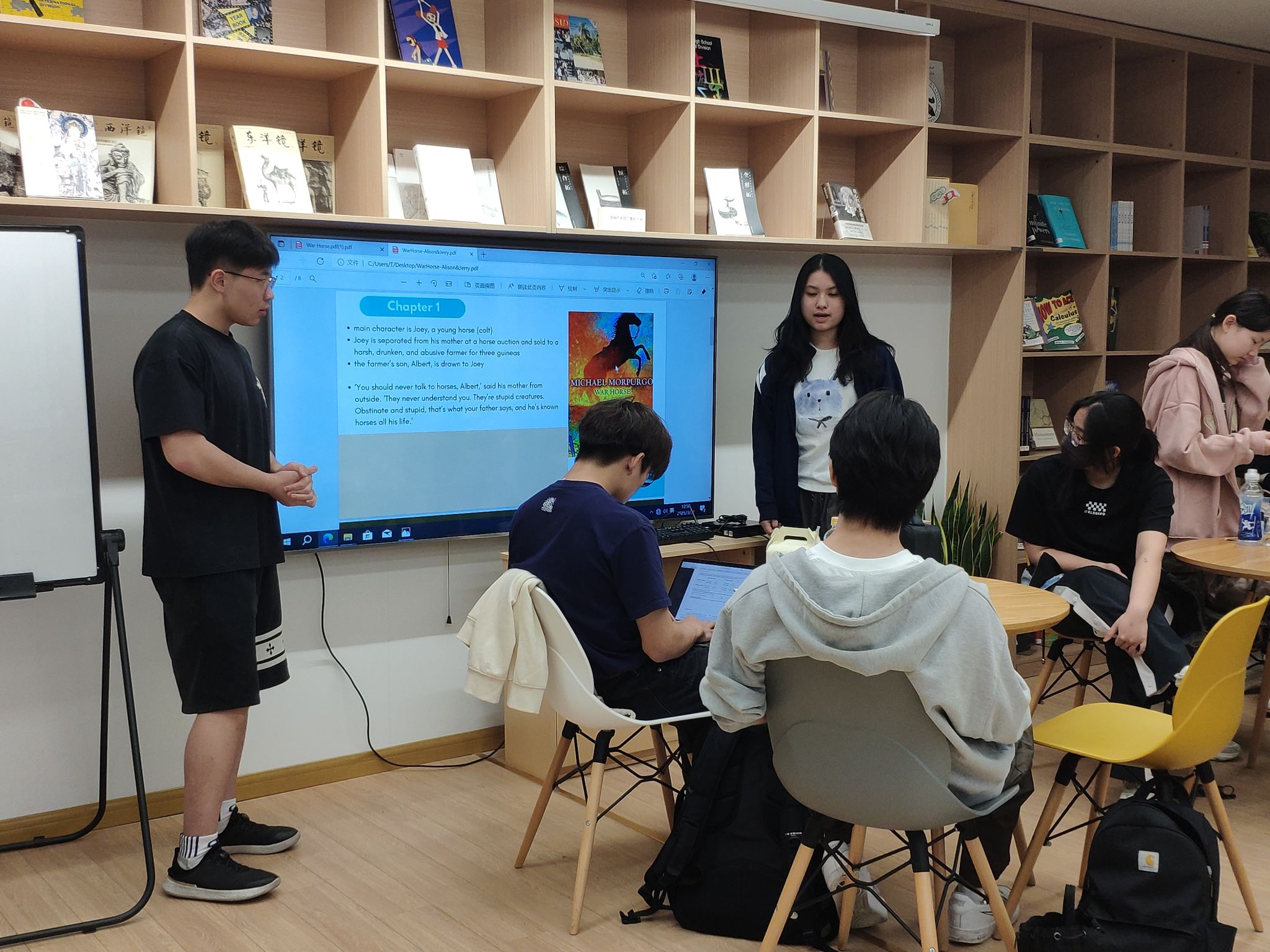

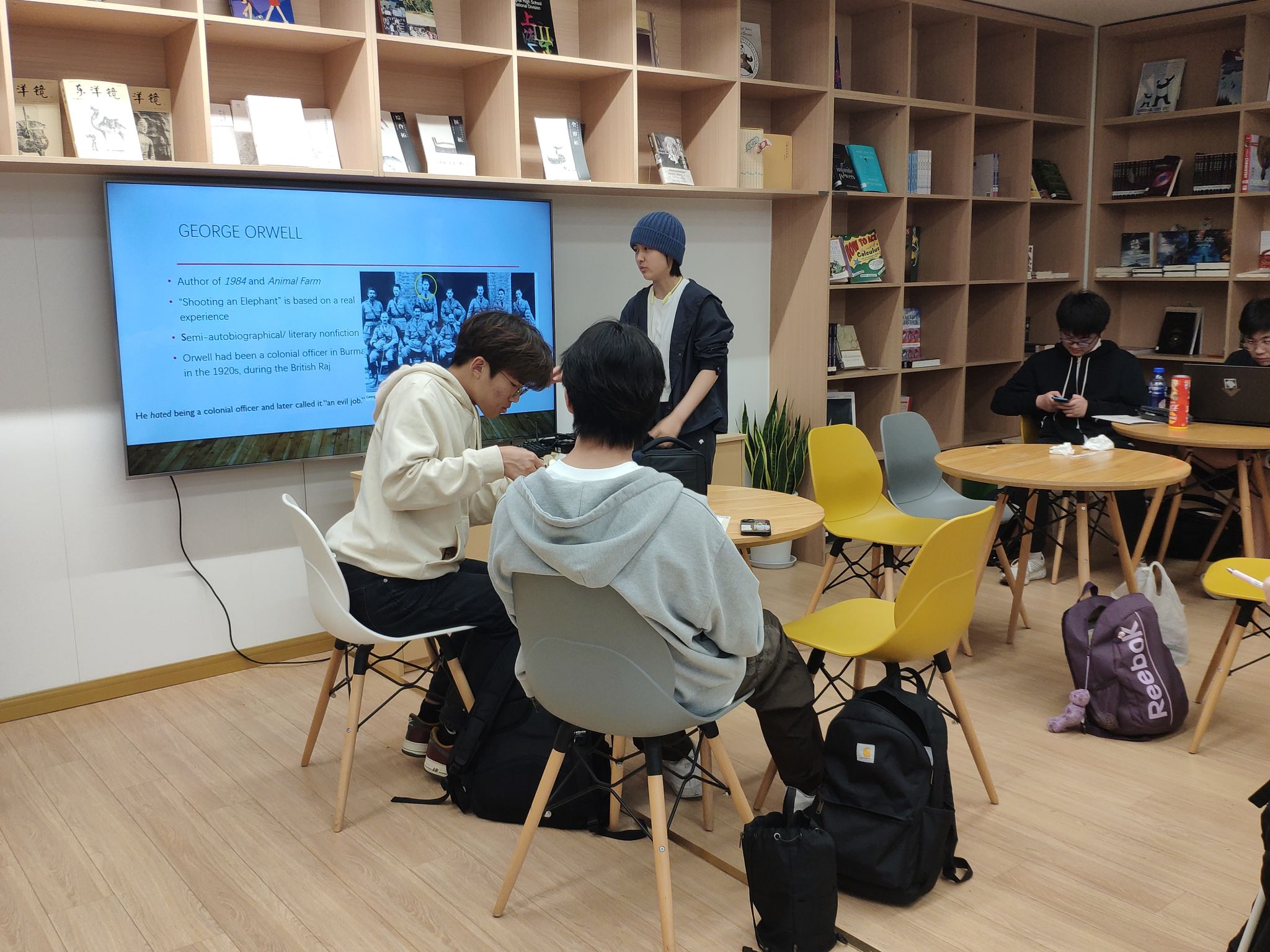
Reading is integral to studying history: reading textbooks, analyzing documents for daily research, and reading outside resources for project-based investigations are all designed to help students acquire basic knowledge, develop a more multifaceted view of people and things, and increase their interest in history. This History reading and sharing activity draws attention to the fact that students are expected to keep reading and thinking and have fun in the process, as many of them will read aloud impressive words and phrases during the sharing, retaining the excitement of exploring and gaining knowledge. At the same time, as Mencius said, “If one believes in books completely, it is better to have no books at all.” always leave a place for critical thinking, constantly absorbing, often asking questions, updating knowledge from time to time, and using books as wings to fly freely.
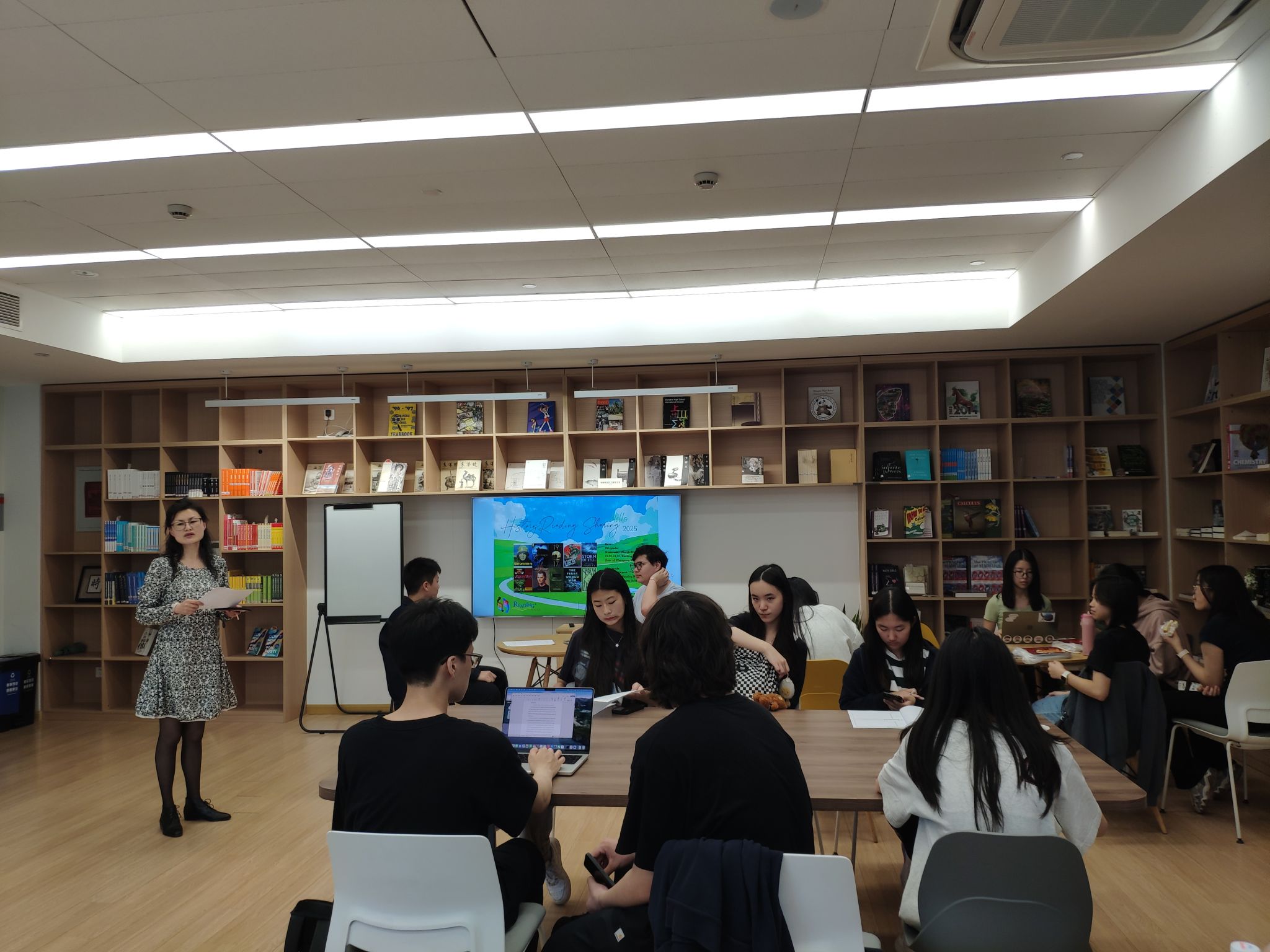
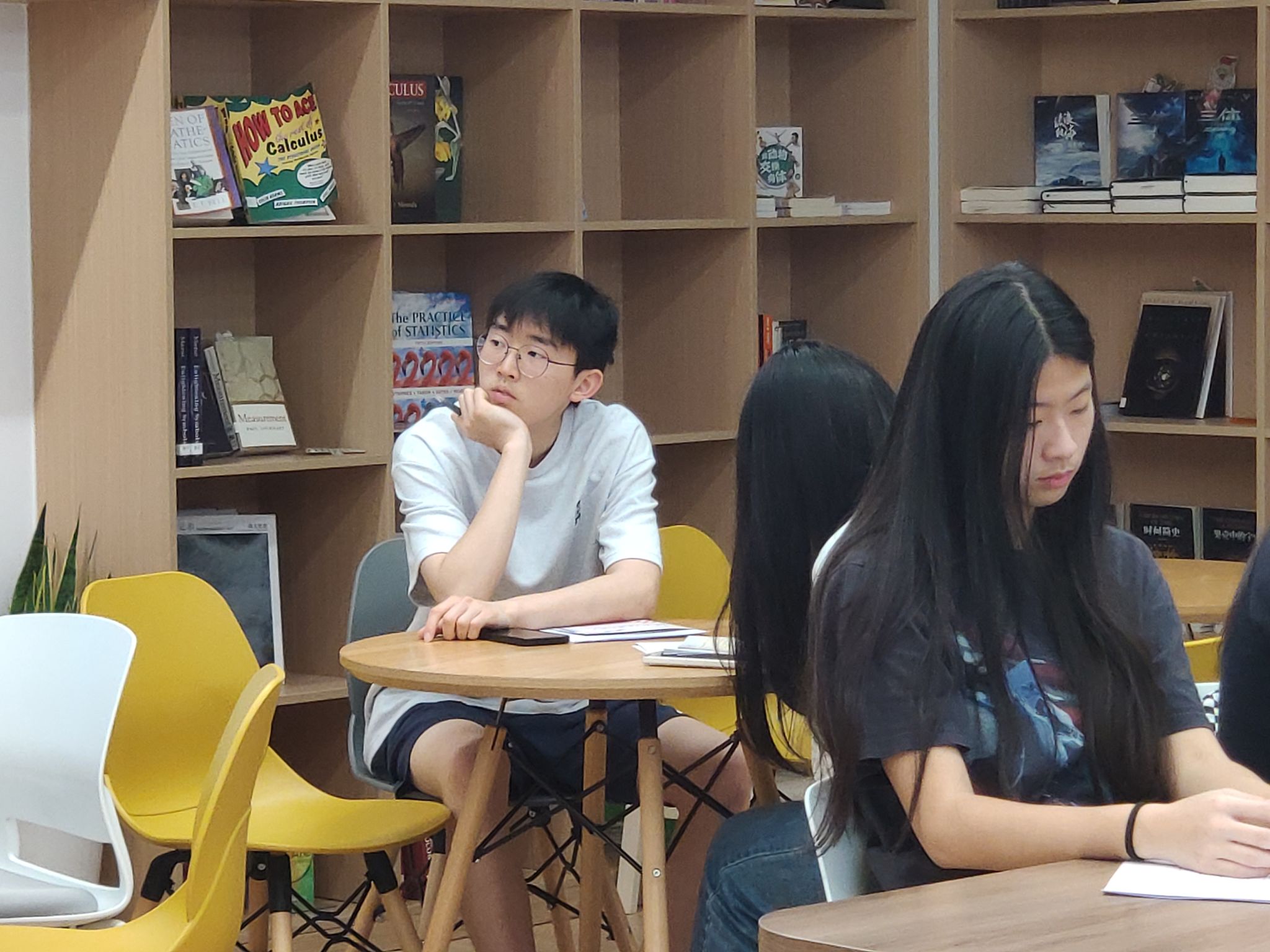
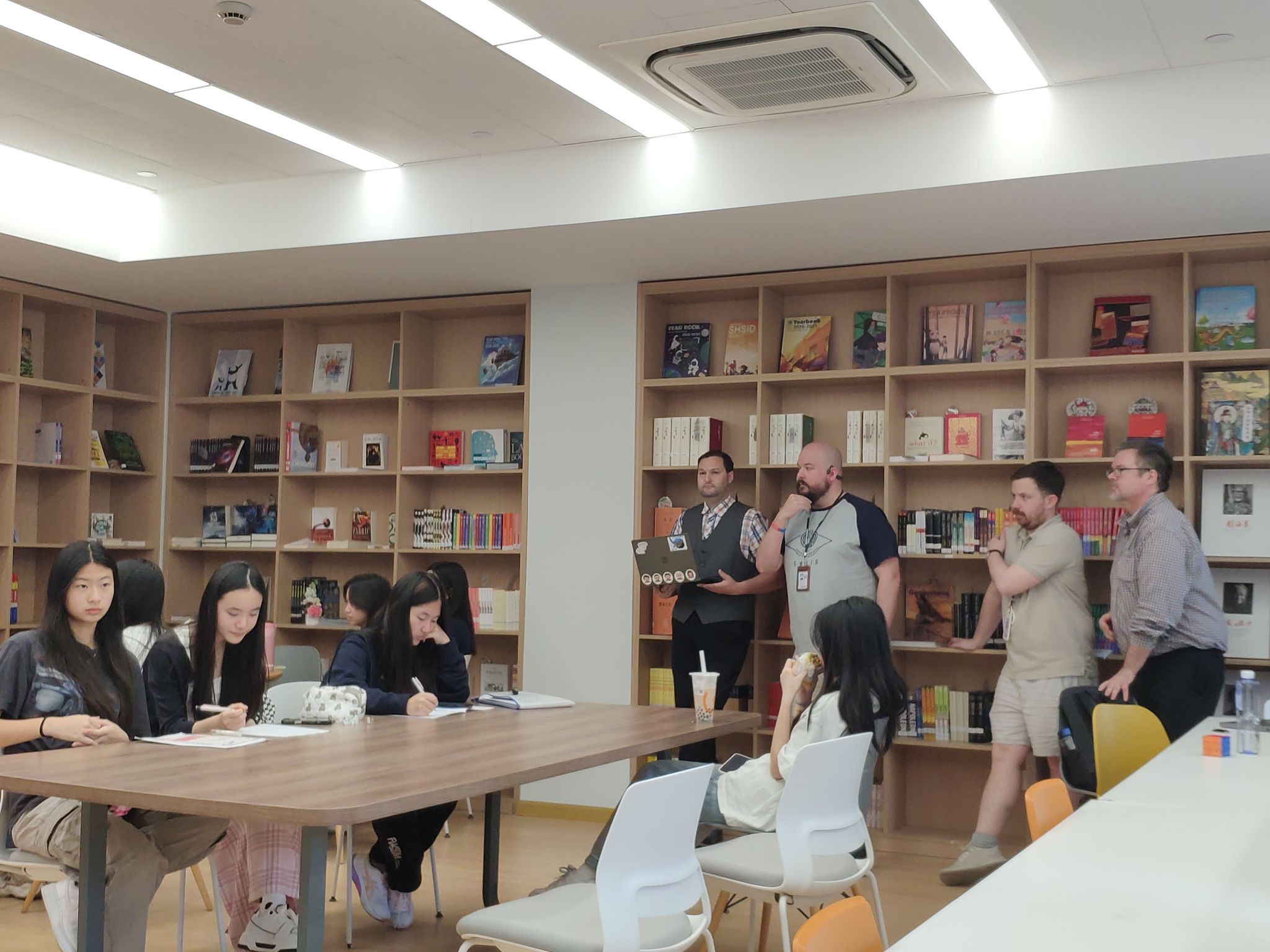
(Written by Shen Zhou Pictures by Shen Zhou Edited by Cody Turner Reviewed by Qian Zuo)